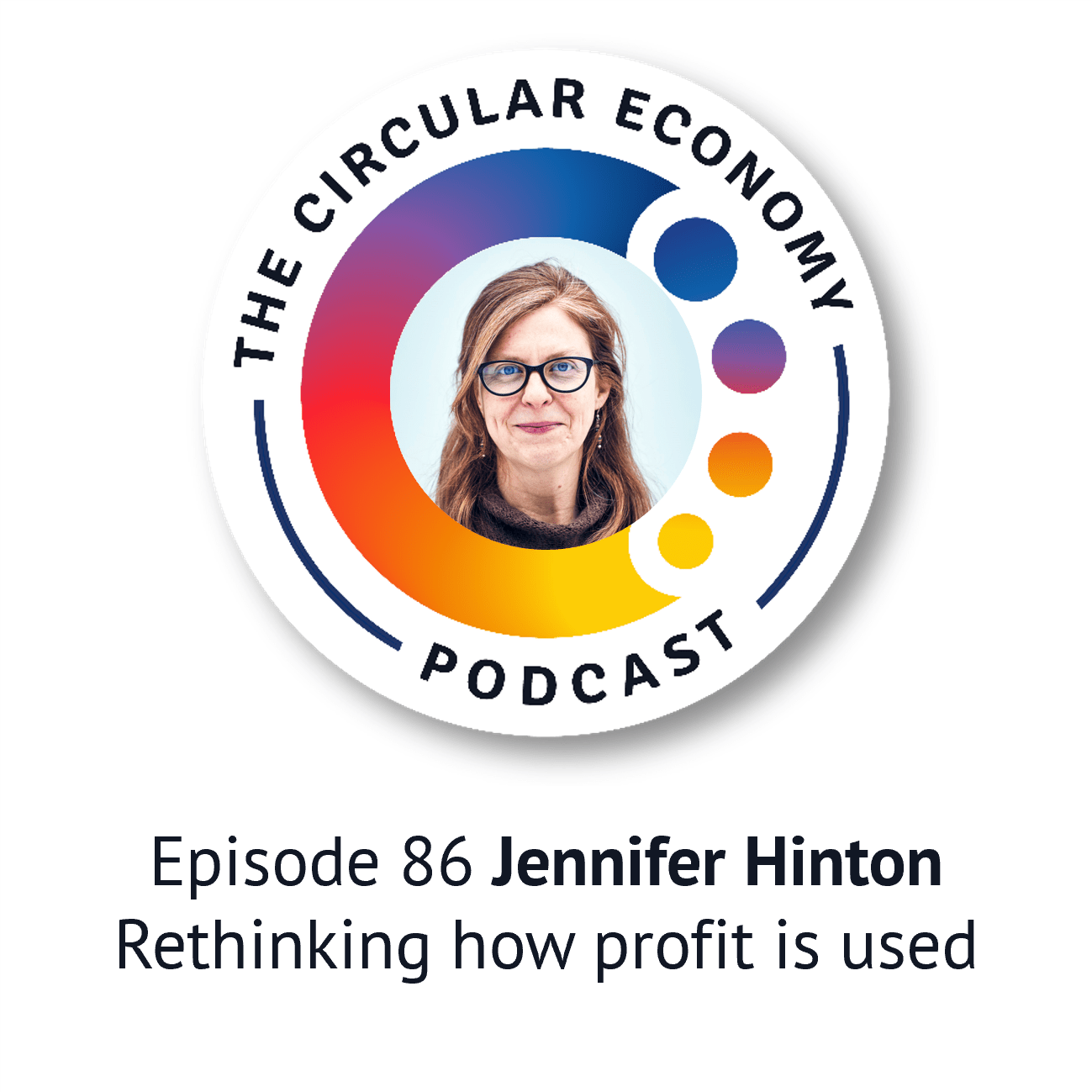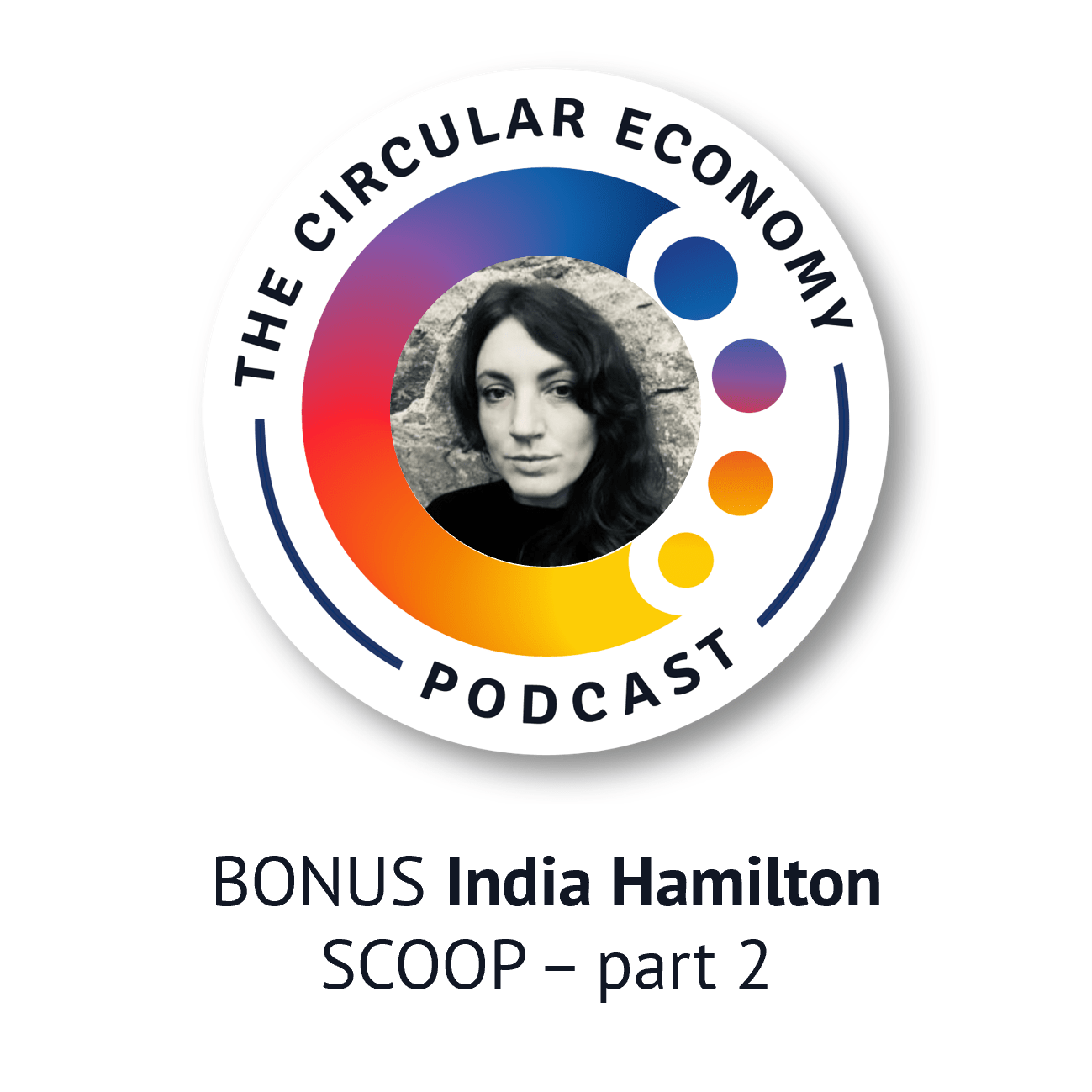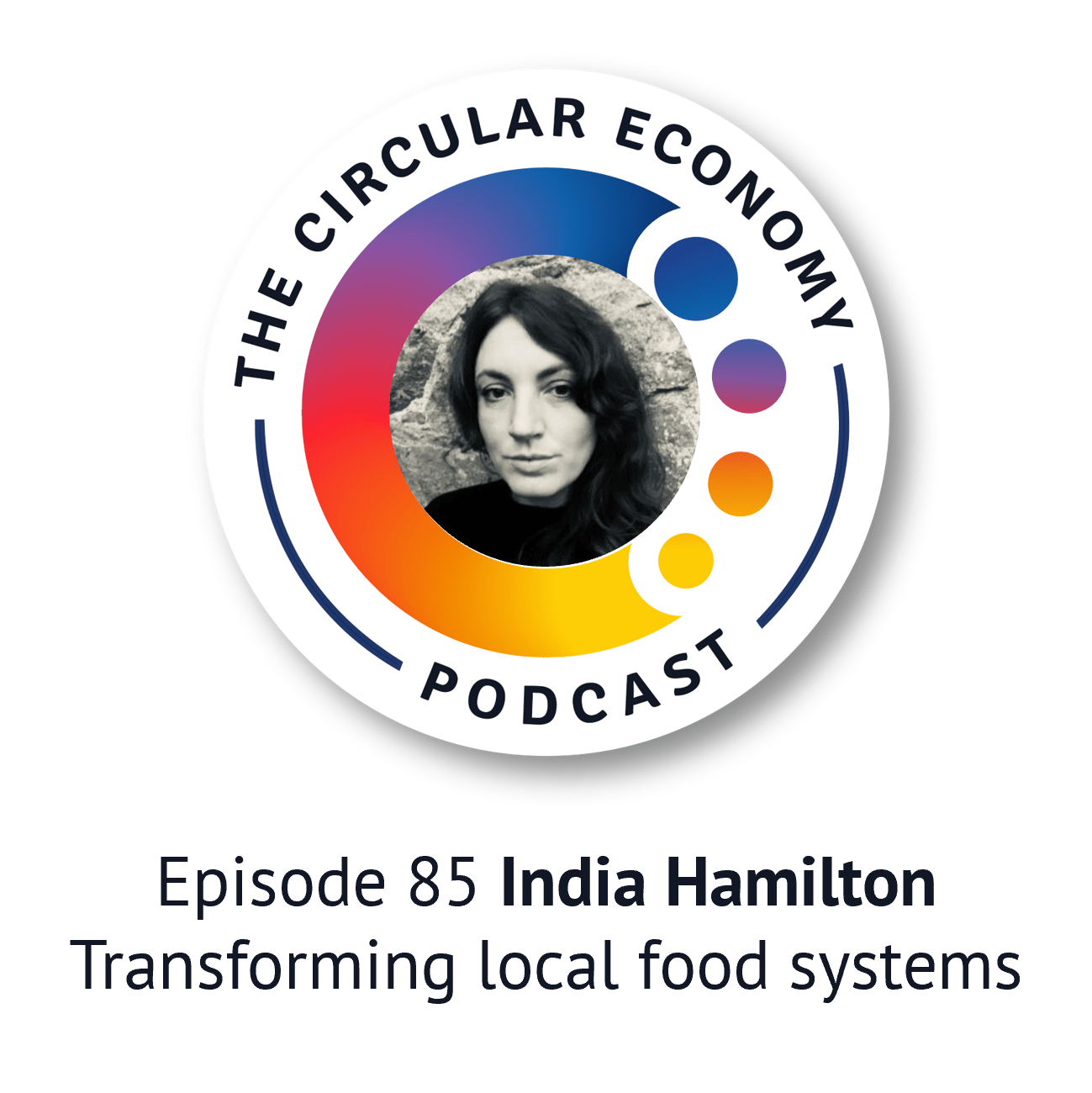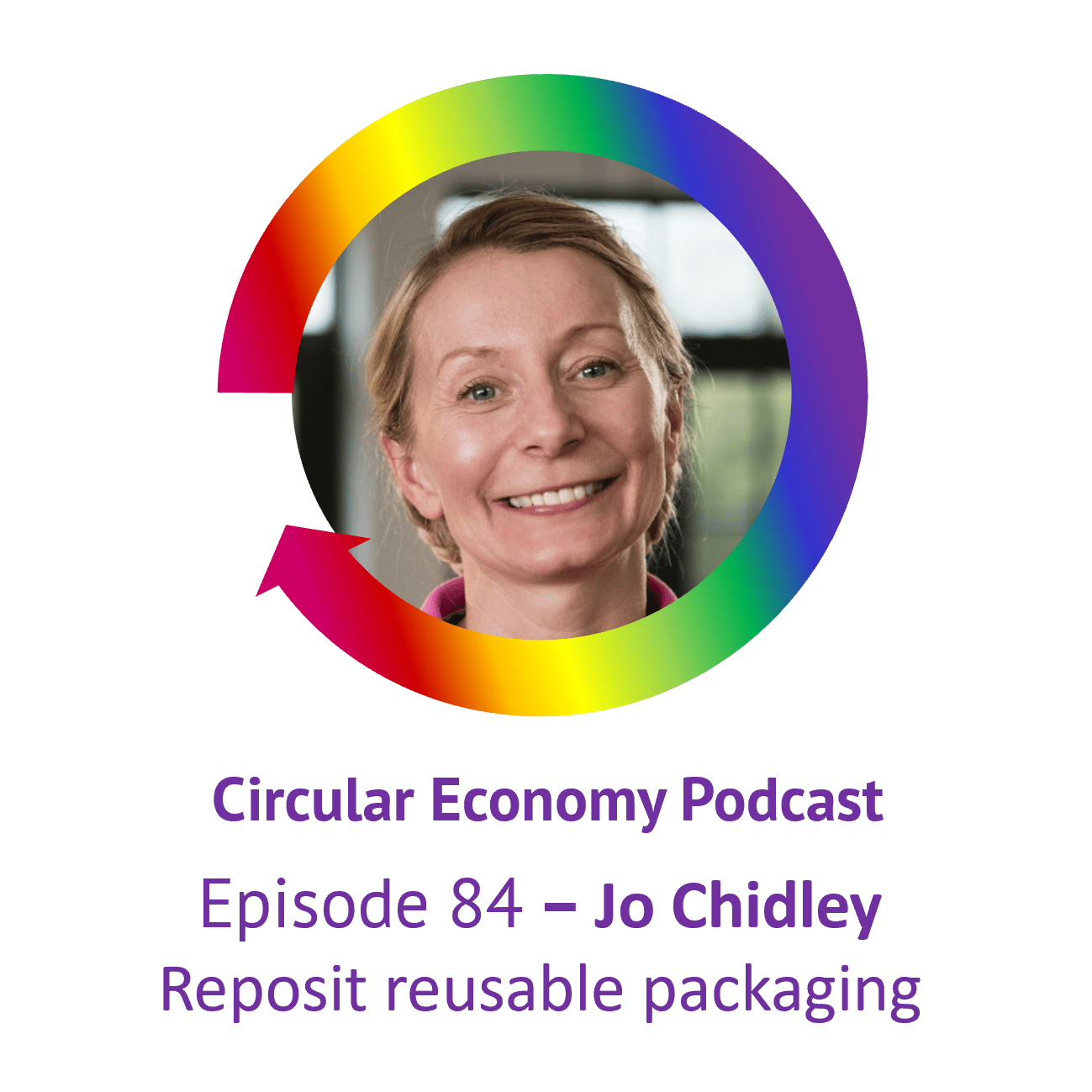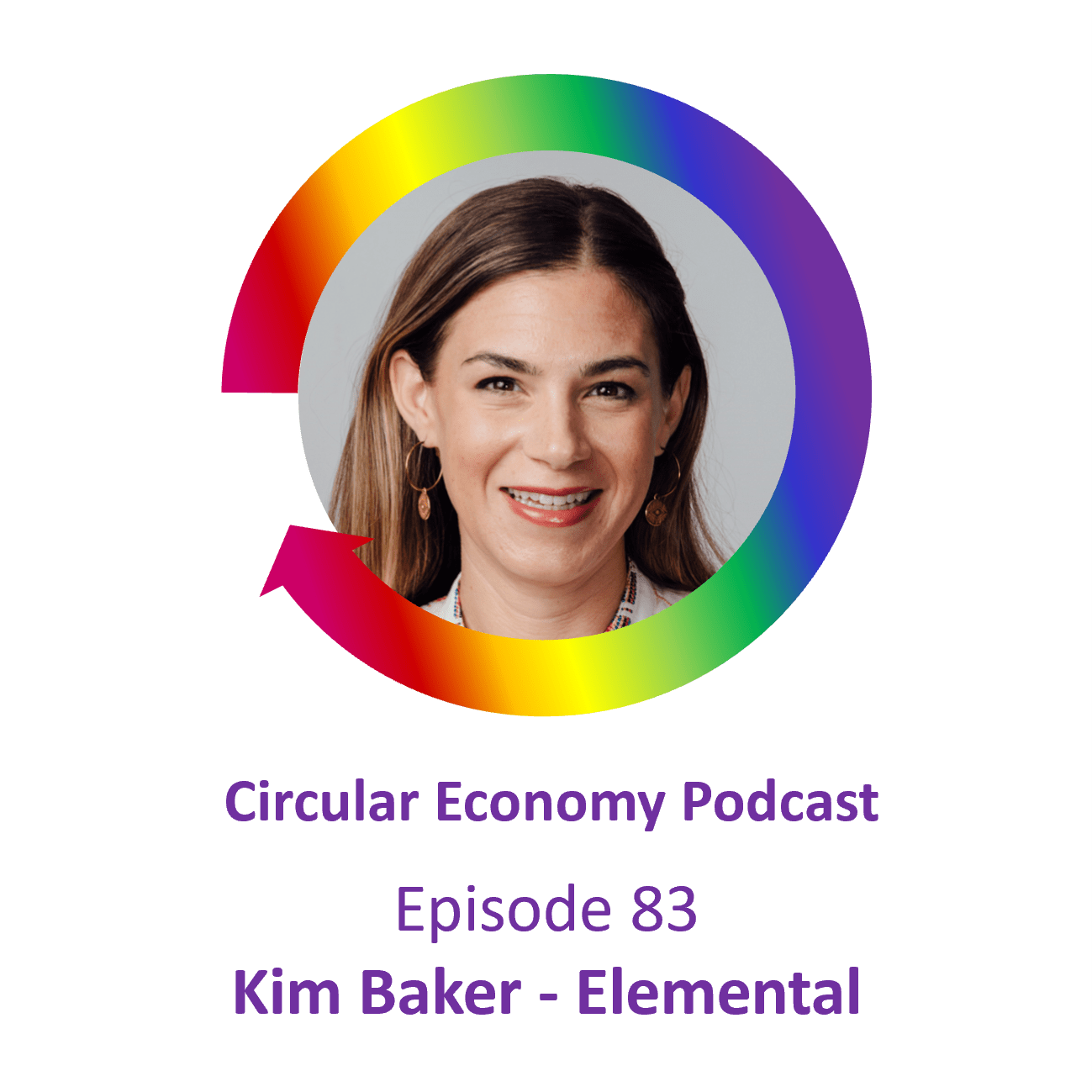Podcast: Play in new window | Download
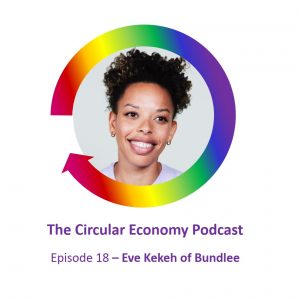 In this episode, we talk to Eve Kekeh, the founder of Bundlee, the UK’s first baby clothing rental subscription. Eve started Bundlee to give parents a sustainable alternative to buying clothes that will be outgrown very quickly. With Bundlee, parents can rent their baby’s wardrobe and swap clothes for the next size up whenever they like. Outgrown clothes are professionally cleaned before being sent to the next family.
In this episode, we talk to Eve Kekeh, the founder of Bundlee, the UK’s first baby clothing rental subscription. Eve started Bundlee to give parents a sustainable alternative to buying clothes that will be outgrown very quickly. With Bundlee, parents can rent their baby’s wardrobe and swap clothes for the next size up whenever they like. Outgrown clothes are professionally cleaned before being sent to the next family.
Bundlee was selected to join the Centre for Fashion Enterprise’s FashTech Pioneer Programme, is currently on the Climate KIC accelerator and was recently featured in The Guardian.
We find out how Eve researched the problems associated with babywear, about some surprising obstacles she had to overcome, and discuss some of the advantages of the rental and subscription business model – for the business and its customers.
What I loved about that conversation were the excellent insights for getting started with circular strategies, including exploring the problem from your customer’s perspective, doing a small-scale pilot, and that when your values align with your customers, it means they turn into supporters: rewarding you with useful feedback, loyalty and valuable word-of-mouth marketing.
Read on for a summary of the podcast and links to the people, organisations and other resources we mention.
You can subscribe to the podcast series on iTunes, Google Podcasts, PlayerFM, Spotify, TuneIn, or search for “circular economy” in your favourite podcast app. Stay in touch to get free insights and updates, direct to your inbox…
Links we mention in the episode:
- Catherine’s LinkedIn post, suggesting how Mothercare could have adopted circular economy strategies and prospered
- Rethink Global rethinkglobal.info
- Eve Kekeh on LinkedIn https://www.linkedin.com/in/evekekeh/
- Bundlee https://bundlee.co.uk/
- Bundlee on social media https://www.instagram.com/bundleebaby/ https://www.linkedin.com/company/bundlee/about/ https://twitter.com/bundleebaby https://www.facebook.com/bundleebaby/
- Hire Street https://www.hirestreetuk.com/
- NuWardrobe https://www.thenuwardrobe.com/
- By Rotation – peer to peer clothes lending https://www.byrotation.com/
- Sustainable Work Spaces https://www.sustainableworkspaces.co.uk/
- Rent the Runway renttherunway.com/
About Eve Kekeh
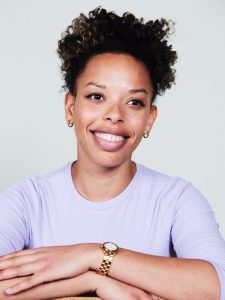 Eve Kekeh is the founder of Bundlee, the UK’s first baby clothing rental subscription. Eve started Bundlee to give parents a sustainable alternative to buying clothes that will just be outgrown. With Bundlee, parents can rent their baby’s wardrobe and swap clothes for the next size up whenever they like. Outgrown clothes are professionally cleaned before being sent to the next renting family to enjoy.
Eve Kekeh is the founder of Bundlee, the UK’s first baby clothing rental subscription. Eve started Bundlee to give parents a sustainable alternative to buying clothes that will just be outgrown. With Bundlee, parents can rent their baby’s wardrobe and swap clothes for the next size up whenever they like. Outgrown clothes are professionally cleaned before being sent to the next renting family to enjoy.
Bundlee is founded on circular economy principles with sustainability at its core. They seek to use new technologies to reduce clothing waste.
Bundlee was selected to join the Centre for Fashion Enterprise’s FashTech Pioneer Programme, is currently on the Climate KIC accelerator and was recently featured in The Guardian.
Learn more about renting at www.bundlee.co.uk and @bundleebaby on social.
What we talk about
[02:20] Eve tells us about how she noticed that baby clothes created a problem, wondering how someone so small needed so much stuff, that is then outgrown very quickly. Eve lived in the US for a year, and had rented clothes from Rent the Runway, which had ‘normalised’ the idea of renting clothes.
Eve researched the problem as part of her Masters degree in Enterprise, discovering that babies grow through 7 sizes of clothes in their first two years. She set up a small-scale pilot with 8 families, with 2 ‘rounds’ of clothing over six months.
Getting started – funding and quality challenges
[10:19] Then we talk about early-stage funding, and the surprising challenges for product quality. Finding that modern baby clothes, like many other clothes, are not designed to last, Eve decided to make clothes specifically for Bundlee to rent.
We discuss how the fashion industry is gradually starting to experiment with rental and resale, and the challenges of proving authenticity for high-value clothing.
Learnings from the pilot and early stages
[11:56] Eve shares some of the learnings from the pilot, and how she realised that to achieve the right quality and durability, Bundlee would have to make its own clothing range.
[16:10] We talk about reverse logistics, and the other aspects of circulating clothing that meets quality standards for durability and hygiene, and of course looks great.
The next phase for Bundlee
[18:09] Eve tells us about her plans for raising funds, scaling to a wider market, and clothes for toddlers. She also plans to talk to brands that might be suitable for a rental model.
The mindset shift – baby-steps towards sustainability
[20:42] We talk about the customer decision process, and how the rental model makes so much sense for busy parents who are keen to embed sustainability into their buying decisions. They think Bundlee and renting is such a cool concept, it’s both easy and convenient, and they love the quality of the clothes. Overall, it’s better quality at a more affordable price, yet sustainability is what the parents mention first. They are so delighted with the service that most of Bundlee’s marketing is through word-of-mouth recommendations.
[21:35] We talk about the mindset shift that’s happened over the last year or so, with more and more people wanting to engage with sustainable ways of living and working. Eve believes that billions of people making little changes can have a big impact.
Eve’s top tips for circular economy strategies
[24:55] Eve advises businesses to focus on the value you’re providing your customer – beyond the sustainability – for someone to make the switch from their usual product, service or buying habit, you need to offer additional value. For example, is it more convenient, better quality, better value etc.
[25:56] We discuss the importance of building a strong business case for all the stakeholders. Customers expect brands and manufacturers to be doing the right thing now – they don’t see why they should pay more for ethical sourcing, safe, non-polluting materials and so on. But in addition to the business case for your customer, you may have to persuade investors, board members, employees, suppliers and so on.
Disrupting the status quo
Eve believes that there is great potential for startups to disrupt the status quo. They are good a communicating what they’re doing and how it’s different, and often their core values are shared by their customers, who know they are not just ‘greenwashing’.
[29:33] We go on to discuss the importance of authenticity and avoiding the risk of ‘greenwash’, and some of the new, meaningless words being used – Eve’s favourite is ‘conscious’.
Eve tells us about her recommendations for future podcasts, and tells us how people can find out more about Bundlee (see the links above).
To find out more about the circular economy, listen to Episode 1, read our guide: What is the Circular Economy or buy the book: A Circular Economy Handbook for Business and Supply Chains
Why not sign up for the latest episode and insights, straight to your inbox?
Want to find out more about the circular economy?
If you’d like to learn more about the circular economy and how it could help your business, why not listen to Episode 1, or read our guide: What is the Circular Economy?
To go deeper, you could buy Catherine’s book, A Circular Economy Handbook for Business and Supply Chains This comprehensive guide uses a bottom-up, practical approach. It includes lots of real examples from around the world, to help you really ‘get’ the circular economy. Even better, you’ll be inspired with ideas to make your own business more competitive, resilient and sustainable.
Please let us know what you think of the podcast – and we’d love it if you could leave us a review on iTunes, or wherever you find your podcasts. Or send us a Tweet: @Rethink _Global.
Podcast music
Thanks to Belinda O’Hooley and Heidi Tidow, otherwise known as the brilliant, inventive and generous folk duo, O’Hooley & Tidow for allowing me to use the instrumentals from the live version of Summat’s Brewin’ as music for the podcast. You can find the whole track (inspired by the Copper Family song “Oh Good Ale”) on their album, also called Summat’s Brewin’. Or, follow them on Twitter.
